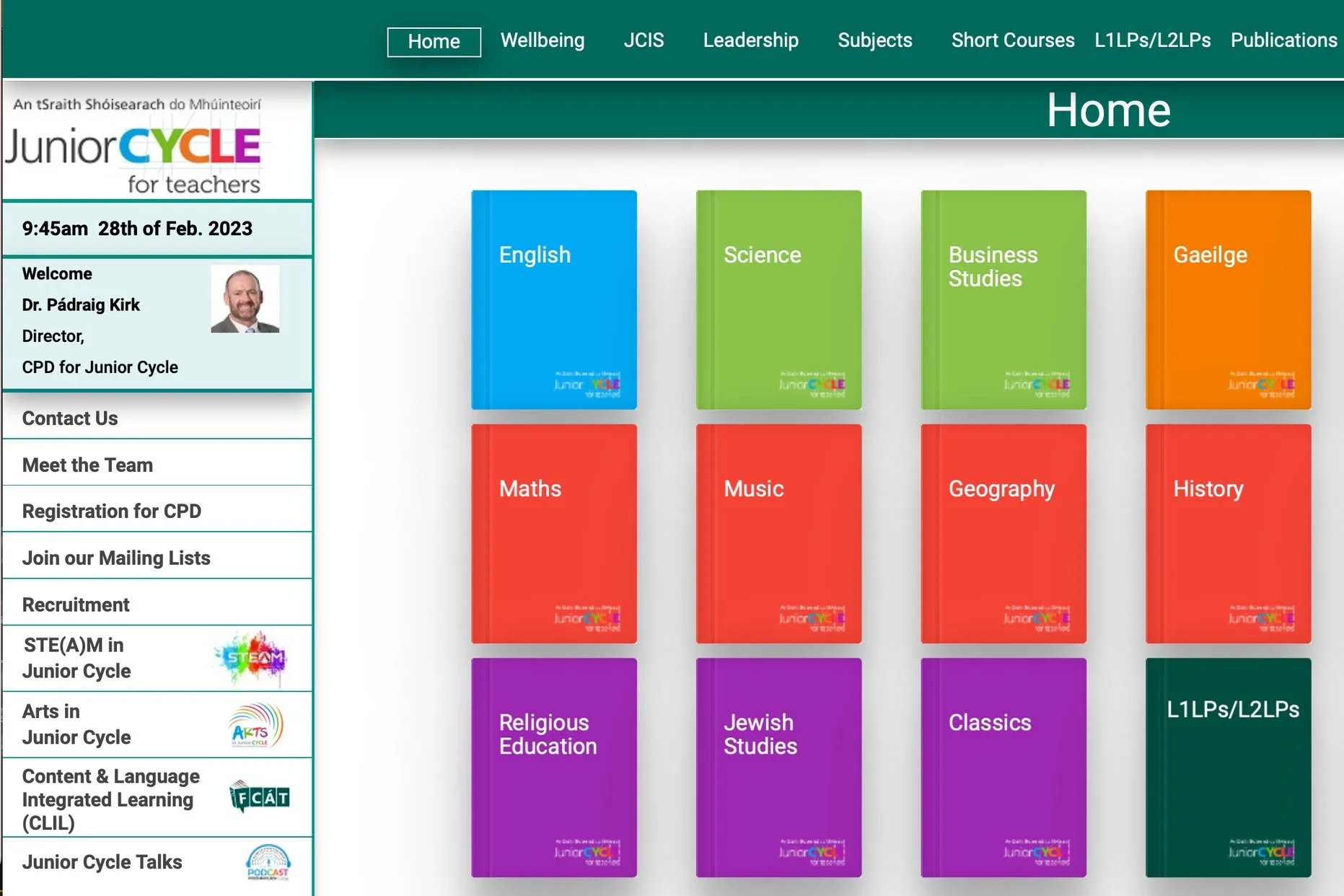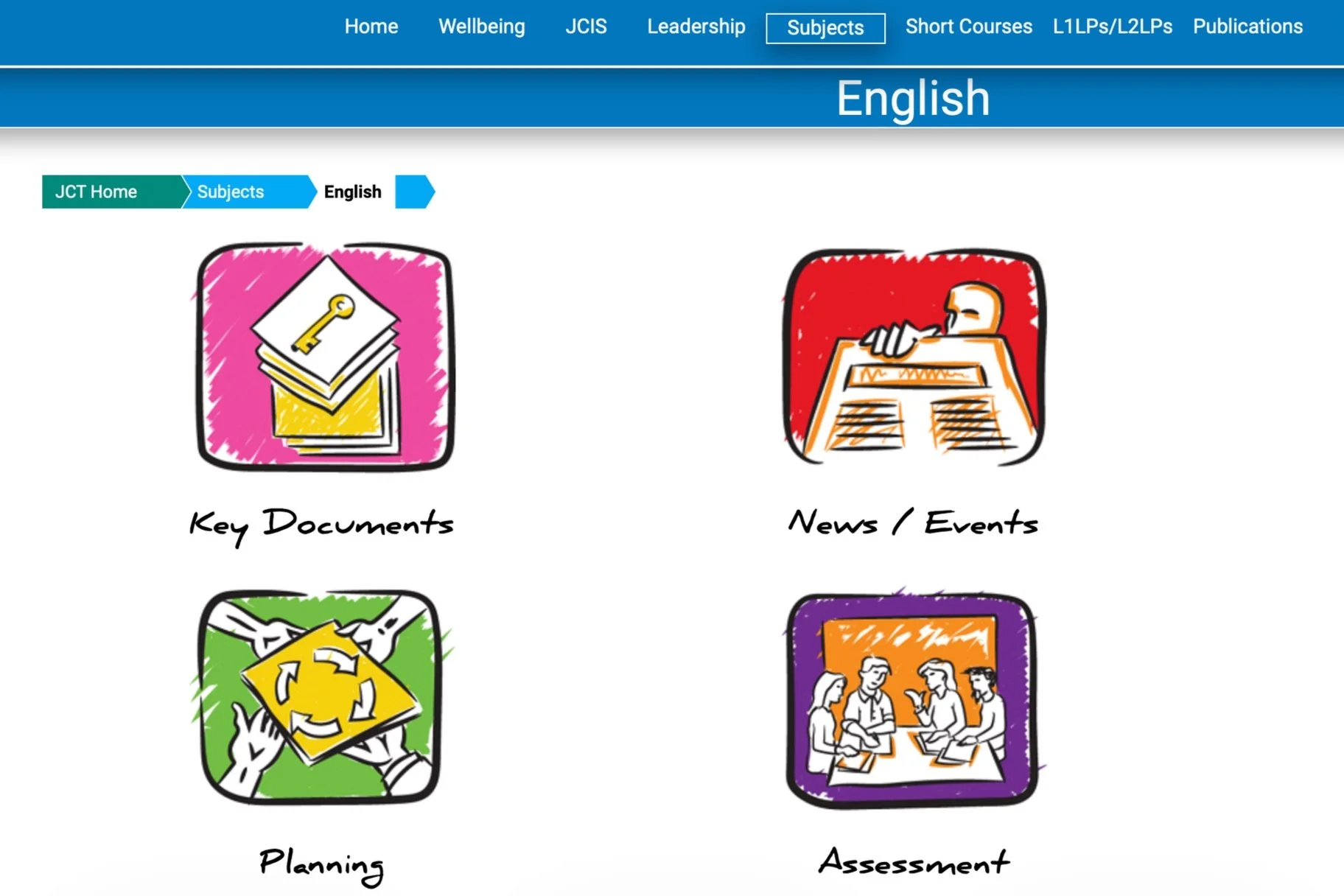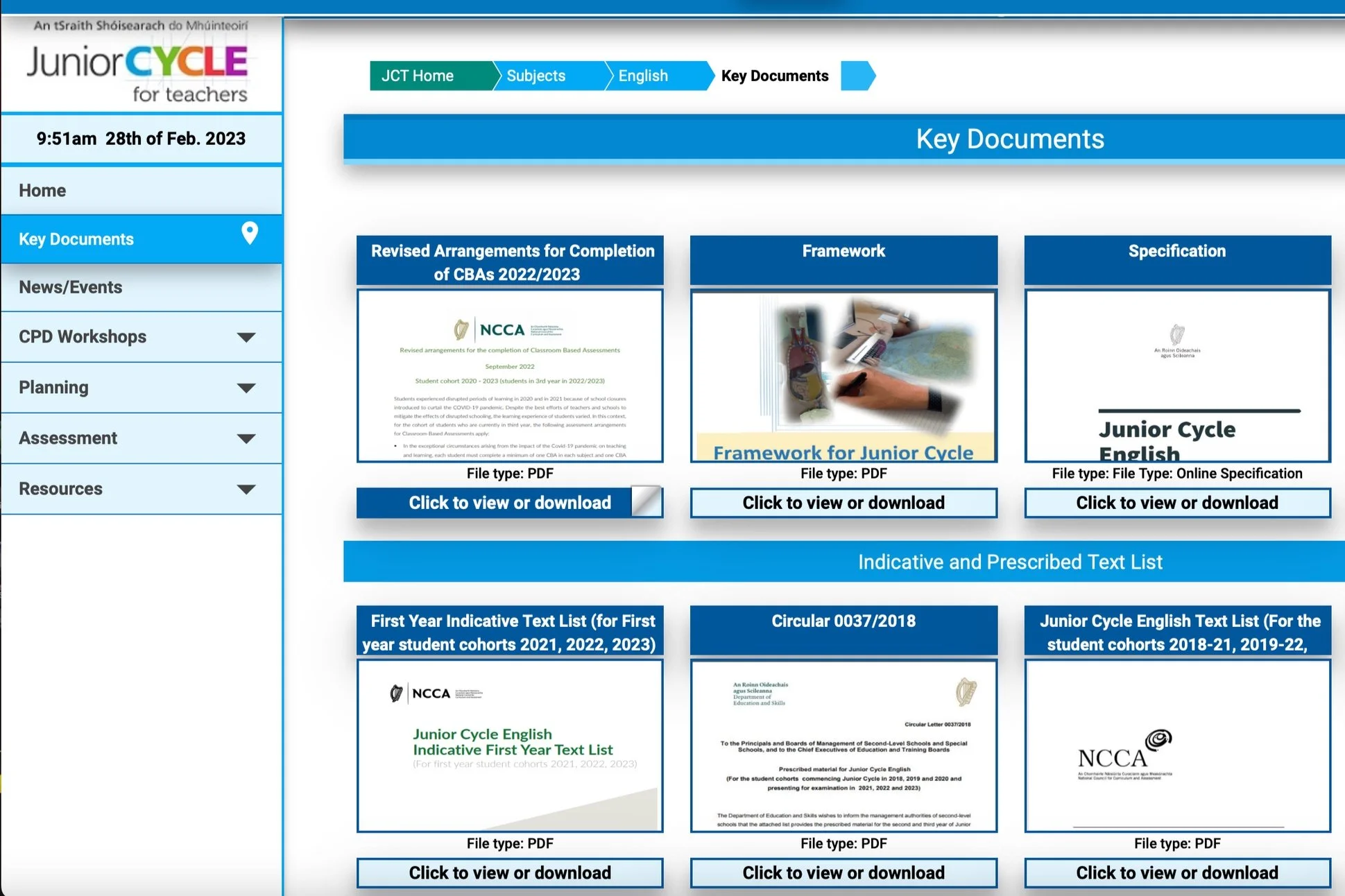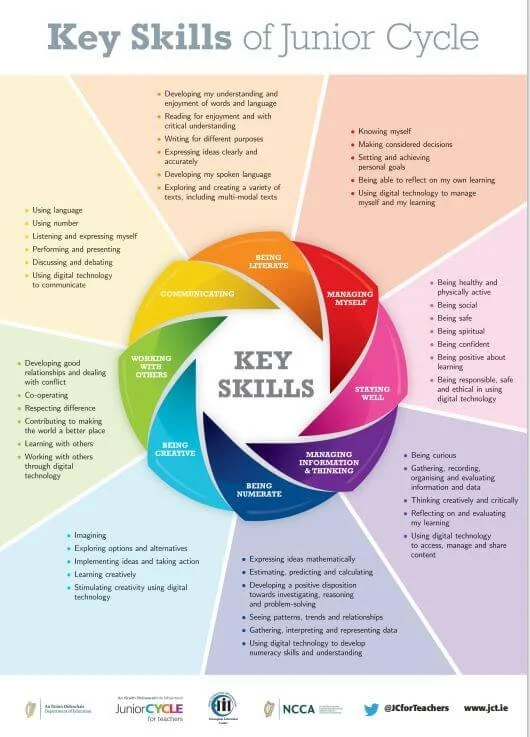Junior Cycle
Junior Cycle is a three year programme leading to the new Junior Cycle Profile of Achievement (JCPA) which has replaced the exam focussed Junior Certificate Examinations of the Department of Education and Skills.
At the end of third year, junior cycle students will receive a Junior Cycle Profile of Achievement (JCPA). The JCPA which will reflect wide range of achievements over the three years and it will report on a number of areas, including:
1. Subjects (Results from State Examination and Assessment Task)
2. Classroom Based Assessments (CBAs)
3. Other Areas of Learning (OALs)
4. Wellbeing
In St. Joseph's, students entering first year study seven core examination subjects and two optional examination subjects. Students sample each of the option subjects and choose two of them after a short taster period. In September 2020, Graphics was added to the curriculum as an additional option subject. The following are the subjects that students will study for the duration of Junior Cycle along with links to their information page on the NCCA website.
Junior Cycle Subjects
Options(Choose two subjects from)
Non-Exam
Religious Education
Computer Studies
Choir
Wellbeing
Physical Education (PE)
Learning to Learn
Wellbeing is a core part of each child's Junior Cycle experience. Wellbeing is embedded in all subjects but has particular relevance to the subjects listed above. The Junior Cycle Wellbeing programme involves timetabled engagement of 400 hours by all students across the three years.
For further information on Junior Cycle subjects, syllabi and specifications check the NCCA Curriculum Online website.
Detailed information specific to each subject can be accessed by viewing or downloading the relevant subject information sheet (see below)
How to access subject information sheets
-
Step 1
Access the JCT Website

-
Step 2
Chose Subject from the website

-
Step 3
Select “Key Documents”

-
Step 4
Scroll down to “Information Leaflet” and click “view or download”

The new Junior Cycle
The new Junior Cycle will place the student at the centre of the learning process. It allows for new ways of learning and a broader range of skills to be properly assessed. Schools will be able to choose from a total of 21 different subjects for inclusion on their Junior Cycle programme.
Classroom Based Assessment
Classroom Based Assessments (CBAs) provide students with opportunities to demonstrate their learning and skills in ways not possible in a pen and paper examination, for example, their verbal communication and investigation skills. CBAs will be undertaken in subjects and short courses and will be facilitated by the classroom teacher.
CBAs will be undertaken during a defined time period within normal class contact time and to a national timetable. Students will complete one CBA in second year and one in third year, in each subject.
Once the second CBA is completed students in third year will complete a written Assessment Task. This task, set by the National Council for Curriculum and Assessment (NCCA), is undertaken during normal class time and will be sent to the State Examinations Commission (SEC) for marking. This Assessment Task will be worth 10% of the overall mark in the case of most subjects. At the end of third year, students will sit the final SEC examination in June. CBAs will be reported on in the JCPA using the following descriptors:
Exceptional
Above Expectations
In Line with Expectations
Yet to meet Expectations
Other Learning Experiences
Students will have the opportunity to engage with a range of other learning experiences as part of their Junior Cycle programme and these can be recorded on the JCPA. Other learning experiences play a critical role in ensuring that students are provided with a broad and balanced educational experience. These learning experiences could include student engagement in a science fair, a musical performance or a debating competition.


